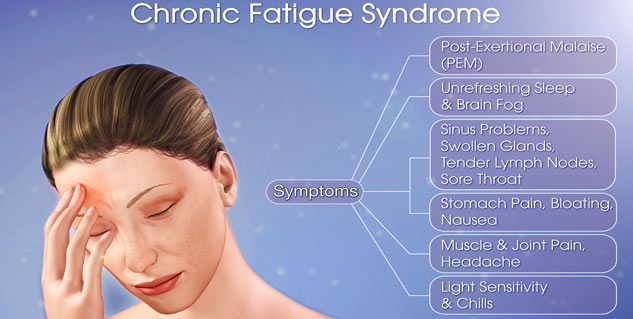
Chronic Fatigue Syndrome (CFS), also known as Myalgic Encephalomyelitis (ME), is much more than feeling tired after a long day. It’s a complex, long-term illness that can severely impact a person’s ability to function day-to-day. Individuals with CFS often refer to it as an intense, relentless sense of exhaustion that does not improve with rest, and which worsens with even light physical or mental exertion.
Table of Content:-
The editorial team of Onlymyhealth reached out to expert, Dr Vikram Vora, Medical Director and Chief Health Officer (Indian Subcontinent), International SOS and he explained, "CFS can affect every aspect of a person's life-from physical stamina and mental focus to emotional well-being and social relationships. It's not just fatigue, but an invisible condition that demands patience, awareness, and consistent management." Read ahead to know everything he shared with us.
How Chronic Fatigue Syndrome Affects Everyday Life
According to Dr Vora CFS affects a person’s life in several ways. These include:
1. Physical Exhaustion and Reduced Energy
The most prominent symptom of CFS is persistent fatigue for at least six months that is not relieved by rest. A person may be exhausted by normal activities such as showering, cooking, or prolonged talking. Muscle pain, joint aches, sore throat, and unrefreshing sleep may also be present.
Dr. Vora explained, "This level of exhaustion is beyond normal tiredness. Patients may wake up feeling as though they haven't slept at all, which makes maintaining a regular routine extremely difficult."
Also Read: What Is Skin Barrier? Expert Shares Causes of Damage and Ways to Repair It

2. Cognitive Difficulties (Brain Fog)
Other major struggles include cognitive impairment, often described as brain fog. Individuals with CFS may have difficulty concentrating, remembering minute details, or processing information in a timely manner. Activities that require concentration, such as reading, working, or studying, become overwhelming tasks.
"This mental fatigue can affect both professional and personal life. Simple decision-making may become exhausting and frustrating, leading to low self-confidence," he added.
3. Emotional and Social Impact
Above all, chronic illness takes an emotional toll. The incessant exhaustion, plus the lack of social contact, often results in anxiety, depression, and feelings of isolation. Patients may withdraw from friends and family and work commitments due to their unpredictable energy levels.
Dr Vora said, "Because CFS is an invisible illness, many patients face misunderstanding from others who assume they are just being lazy or exaggerating their symptoms. This lack of empathy adds to emotional distress."
4. Sleep and Rest Patterns Disrupted
Though CFS patients are extremely tired, they often cannot sleep or may have a very disturbed sleep pattern. Poor sleep exacerbates symptoms of pain and fatigue, leading to a self-reinforcing negative cycle that is difficult to break.
5. Impact on Work and Productivity
For many people, holding a full-time job becomes almost impossible. Poor concentration, forgetfulness, and persistent fatigue get in the way of job performance. Some will have to turn to part-time work, work at home, or take frequent breaks.
Expert Tips to Manage Chronic Fatigue Syndrome
Although there is no clear-cut cure for CFS at the moment, one can make daily life more feasible by combining lifestyle changes, medical guidance, and stress management techniques. Dr Vora shared some tips including:
1. Rest and Pace
"The most effective strategy is pacing yourself," highlighted Dr Vora. That is, balance activity and rest to avoid overexertion. Pay attention to your body and plan energy-demanding tasks when your stamina is higher.
2. Maintain a Sleep Routine
Good sleep hygiene is important. Go to bed and awaken at the same time each day; avoid caffeine and screen time before bedtime; and make your sleep environment comfortable.
3. Have a Balanced Diet
Nutritional foods that balance blood sugar and sustain energy, like whole grains, lean proteins, fruits, and vegetables, can make quite a difference. It is likewise important to stay hydrated.
4. Stress management
Chronic stress can exacerbate symptoms of CFS. Dr Vora advocated for the practices of mindfulness, meditation, yoga, or even light breathing exercises. "Even a few minutes of deep breathing daily can help calm the mind and body," he says.

5. Gentle Exercise
Though it may sound counterintuitive to exercise when you're feeling tired, light activities such as stretching, tai chi, or slow walks can help improve blood flow and reduce stiffness. "Always start slow and stop if you are feeling tired," added Dr Vora.
Living with CFS: Journey of Patience and Adaptation
CFS requires a shift in perspective, focusing not just on what one cannot do, but also on how one can adapt. Small changes, supportive relationships, and realistic goal setting can make the difference in improving the quality of one's life.
As Dr Vora concluded, "Managing CFS is about finding your rhythm. Learn to listen to your body, respect your limits, and celebrate small victories. Recovery may not be linear, but improvement is absolutely possible with time and care."
Bottomline
CFS is life-changing, but with awareness, lifestyle adjustments, and professional guidance, it is possible to regain control of life despite challenges.
Also watch this video
FAQ
1. Is there a complete cure for Chronic Fatigue Syndrome?
While there is no known cure for CFS, symptoms can be managed with lifestyle changes, medical support, and stress reduction.2. Is CFS the same thing as regular tiredness?
No, CFS is severe, prolonged exhaustion that is not relieved by rest and is often accompanied by pain, problems with cognitive functioning, and sleep problems.3. Can exercise worsen symptoms of CFS?
Fatigue can be triggered by overexertion, so gentle, paced exercise is usually recommended under medical supervision to avoid symptom flare-ups.
How we keep this article up to date:
We work with experts and keep a close eye on the latest in health and wellness. Whenever there is a new research or helpful information, we update our articles with accurate and useful advice.
Current Version
Nov 01, 2025 08:50 IST
Published By : Tanya Srivastava